What sounds do guinea pigs make and what do they mean?
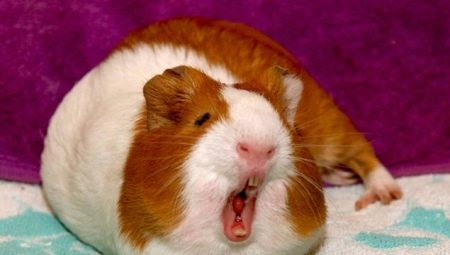
Guinea pigs are small and very cute animals. And if you want to buy yourself this little animal, then you should know that they are very sociable. And they speak with the help of various sounds. And each of them means something different. It can be: hunger, pleasure, fear, pain. They can do this constantly, at any time of the day or night.
Each state has its own sound. And if you want to be a good host, then you should learn to recognize them. When you study them, it will become easier for you to communicate with your pet, and you can make it more comfortable for him to live.
Many people have a question - why when you stroke the pigs, they start to squeak? The answer is very simple: in this way, the "piglets" show that they are happy.
In this article, you will find out what strange sounds guinea pigs make and what they mean.
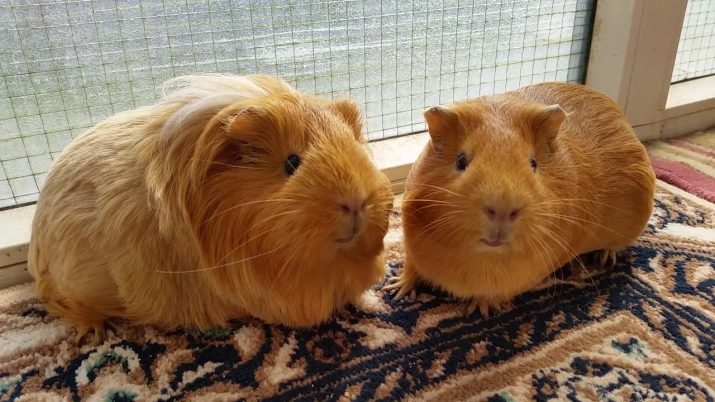
Whistling
This sound is one of the most common, and you will hear it very often. They publish it when full of joy. When you come home and see that your pet stands on its hind legs and whistles, then know that he is glad to see you. The pig can also whistle in the event that if he wants to eat, and in your hands he sees his favorite treat.
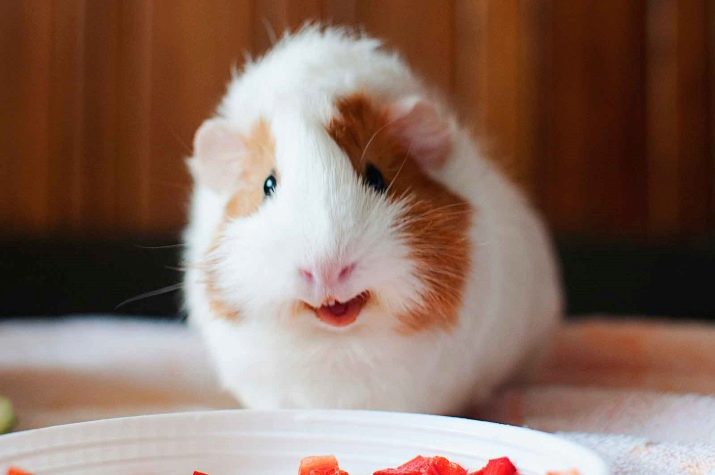
Sopit
This signal means that the guinea pig is feeling anxious or waiting for something. Sometimes puffing can turn into a whistle. This phenomenon occurs when the owner is going to feed the animal. But at the same time, with this method, they can demand attention.
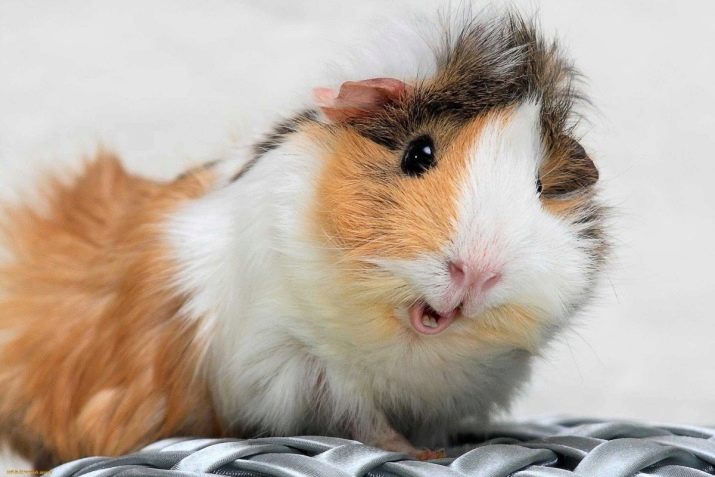
Hums
This sound has many meanings, and in order to understand what the pig wants to say, you need to rely on the pose in which she is. If she is relaxed, then at that moment she is content and happy.But at the same time, if a rather high tone is traced, then there is a high probability that the pet is annoyed. At this moment, you can observe a tense state. And if you look closely at him, you will notice that he is trembling.
If the rumbling is abrupt, it means that the animal feels fear and discomfort.
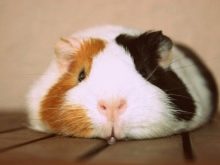
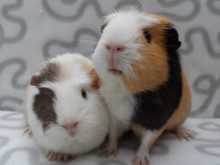
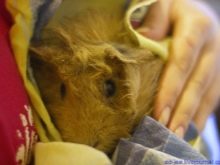
Growls
The animal growls in much the same way as it hums, but the tones differ in that the former sounds rather low. You can hear such expressions of emotion when the male begins to court the female. You can also hear this sound from the female during the mating season. Growling is mainly used for background during mating. Even at these moments it may seem to you that the animals are quacking. So don't be intimidated.
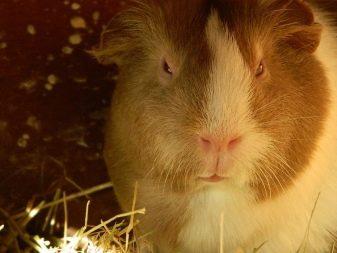
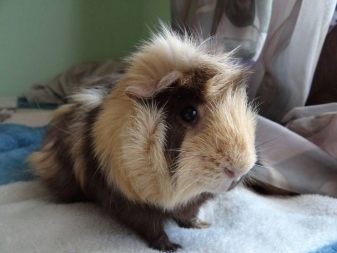
Teeth grinding
With this action, the animal wants to show that it is angry or in a bad mood. It may also mean that the animal is aggressive. While grinding, it may show its teeth, thus telling you not to touch it.
This behavior can also mean anger, discontent, and that the guinea pig is preparing for a fight. Therefore, in order to understand the mood of your pet, you should take a closer look at him.
To understand the cause and nature of this manifestation of emotions, it is necessary to monitor the animal and not irritate it.
In order not to provoke the pet to negative emotions when you just acquired it, it is worth letting it adapt to a new place. And therefore, you should not be near the cage for a long time. If you bought your pet a new toy, he should get used to it as well. Therefore, it should be installed next to the cage and only after a while should be placed in it. With the help of such an action, your pet will get used to the new thing and understand that it does not carry any threat.
Pet can start chattering teeth due to other external stimuli, such as:
- smells of other pets;
- replacement of the diet;
- extraneous loud sounds from various devices;
- a sharp drop in temperature.
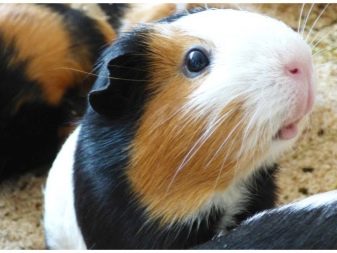
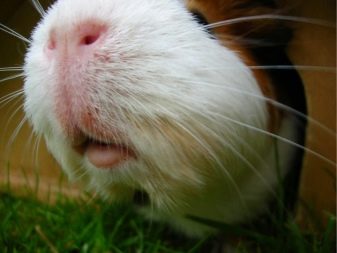
Pay special attention to whether your animal knocks or squeaks. This detail is important, since the reasons for the occurrence are different.
Creak of teeth may appear, if they are overgrown or grind poorly when the animal eats solid food or plays with toys. If this is the case, then you should consult a doctor for diagnostics and treatment. Inaction can lead to infection and thinning of the teeth.
It may also indicate the appearance of parasites, which must be eliminated. And in order to accurately determine the cause of these symptoms, you need to contact a veterinary clinic and pass all the necessary tests. In the event that the matter is in parasites, the treatment is selected exclusively by a veterinarian. And if you do not follow his recommendations, then the situation can acquire irreversible consequences.
Therefore, you should not rely on yourself or your friends who have had the same situation.
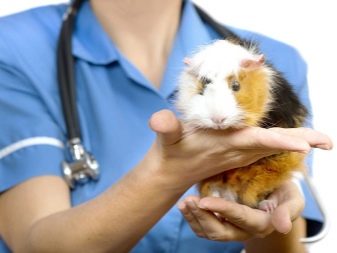
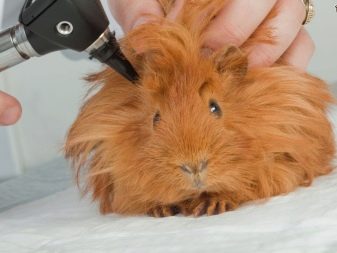
Hiss or whistles
Hissing is almost the same as grinding teeth. Very often they complement each other. Under natural conditions, this means that the rodent is scared.
Guinea pigs coo when they feel confident. Basically, this sound is made by females when they call their babies. Also, with the help of such a squeak, guinea pigs can communicate at the time of courtship. When a newly born guinea pig publishes it, it means that she is experiencing anxiety.
And if you have accustomed your pet to the hands, then in this way he may try to attract attention to himself, so that they can take him and play with him. In addition, with the help of a squeak, the pigs can show that they are happy to see their owner. They also beg for their favorite delicacies.
Mostly by whistling, they show that they are hungry, and tell the owner about it.
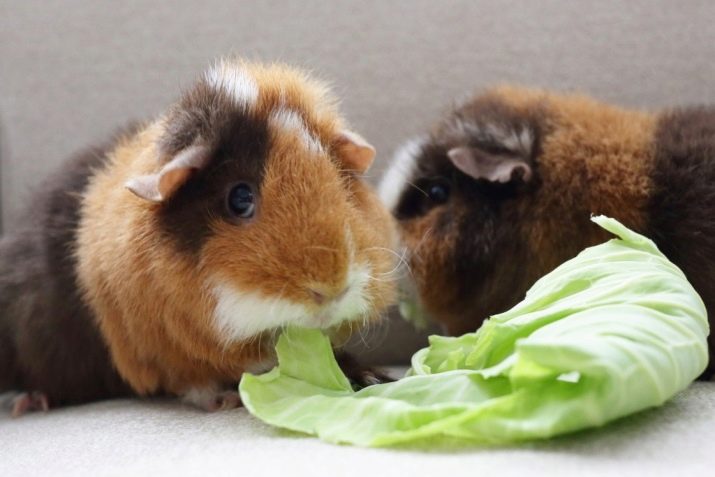
Squeals or whines
A screech is a loud, heart-rending squeak, with the help of which the animal tries to convey to you that it is experiencing fear or pain. In the event that your pet makes such a sound, immediately go to him and check if everything is fine with him. If the animal moans or whines, then it wants to say that is irritated or disgusted with something or someone.
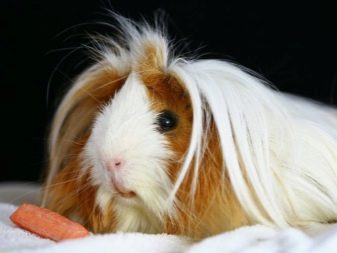
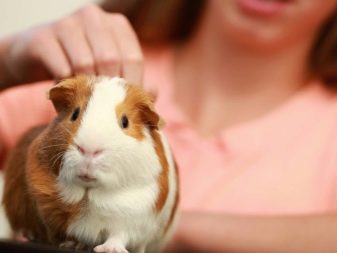
Chirps
This sound is very similar to birdsong. And his guinea pigs almost never publish. If you observe your pet at the time of this action, then you might think that he is in a trance.
What these sounds mean is not yet known, there is still controversy on this issue.
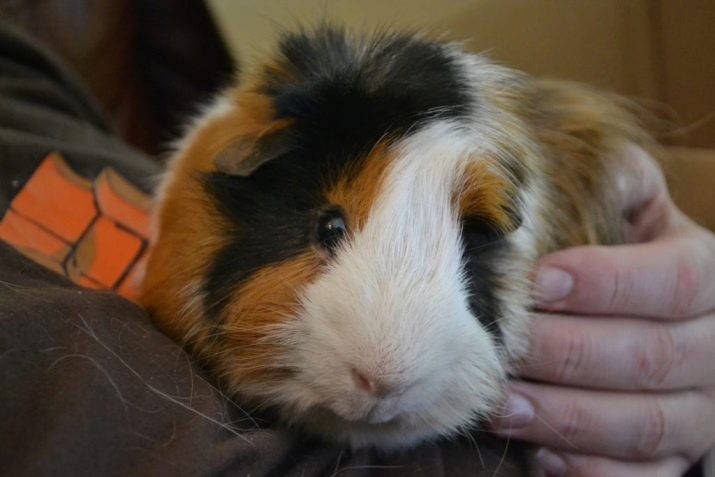
Language of the body
These rodents can communicate not only through sounds, but also through body language. In the event that you deal with him, you can understand without any problems what your pet wants and what he feels.
Young pigs jump up when they are in a good mood, happy, or excited. Sometimes older pigs show their emotions this way, but the jumps are not so high.
If the animal is in doubt or surprised by something, then it will be in a daze. At this moment, it will stand and not move.
In order to assess the situation around them, they will sniff everything. In this way, they also get to know other representatives of the species. To do this, they sniff the nose, chin, ears and back. They greet by touching their noses.
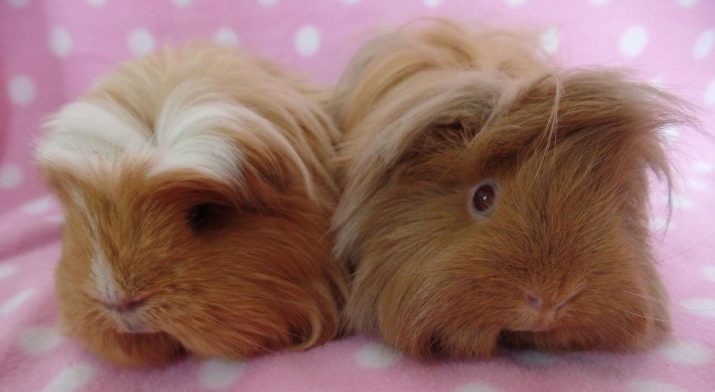
When the pigs show aggression, they do so in order to be higher than the enemy, standing on their hind legs and raising their head. In addition, they begin to sway from side to side, the coat stands on end and they begin to grin. Guinea pigs may start to hiss to add effect.
If you see similar behavior in your favorites, then you should be careful. Because there is a high probability that you will need to intervene in their relationship so that there is no fight.
Similar behavior towards the female during the mating season means that the male is showing sympathy.
These cute rodents often mark their territory. And to do this, they rub their head, neck or back of the torso against the things they want to mark.
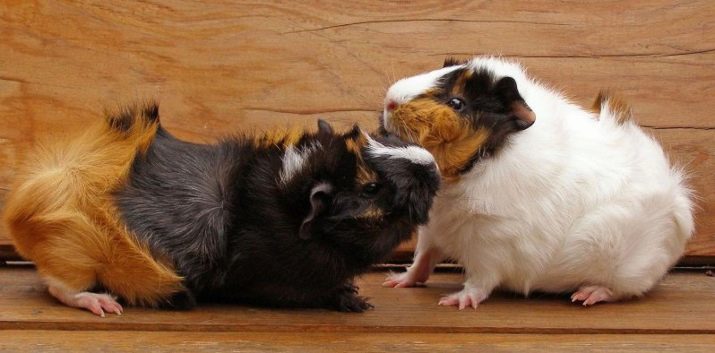
Moments to watch out for
A heart-rending cry means that the animal is afraid or feels pain. And at the moment he feels bad. As soon as you hear this, then immediately go to your pet to see if everything is okay with him.
It is also worth paying special attention to teeth grinding. This means that the animal's teeth begin to grow, but toys and solid food do not help. If you run the situation, an infection can occur. And in this case, you should immediately consult a doctor.
Any loud cry of your pet means that somewhere nearby he feels danger or something threatens his health. And if you hear wheezing while breathing, then urgently go to the veterinarian, because life is at stake.
The veterinarian tells more about the language of communication between guinea pigs and the outside world in the video below.








